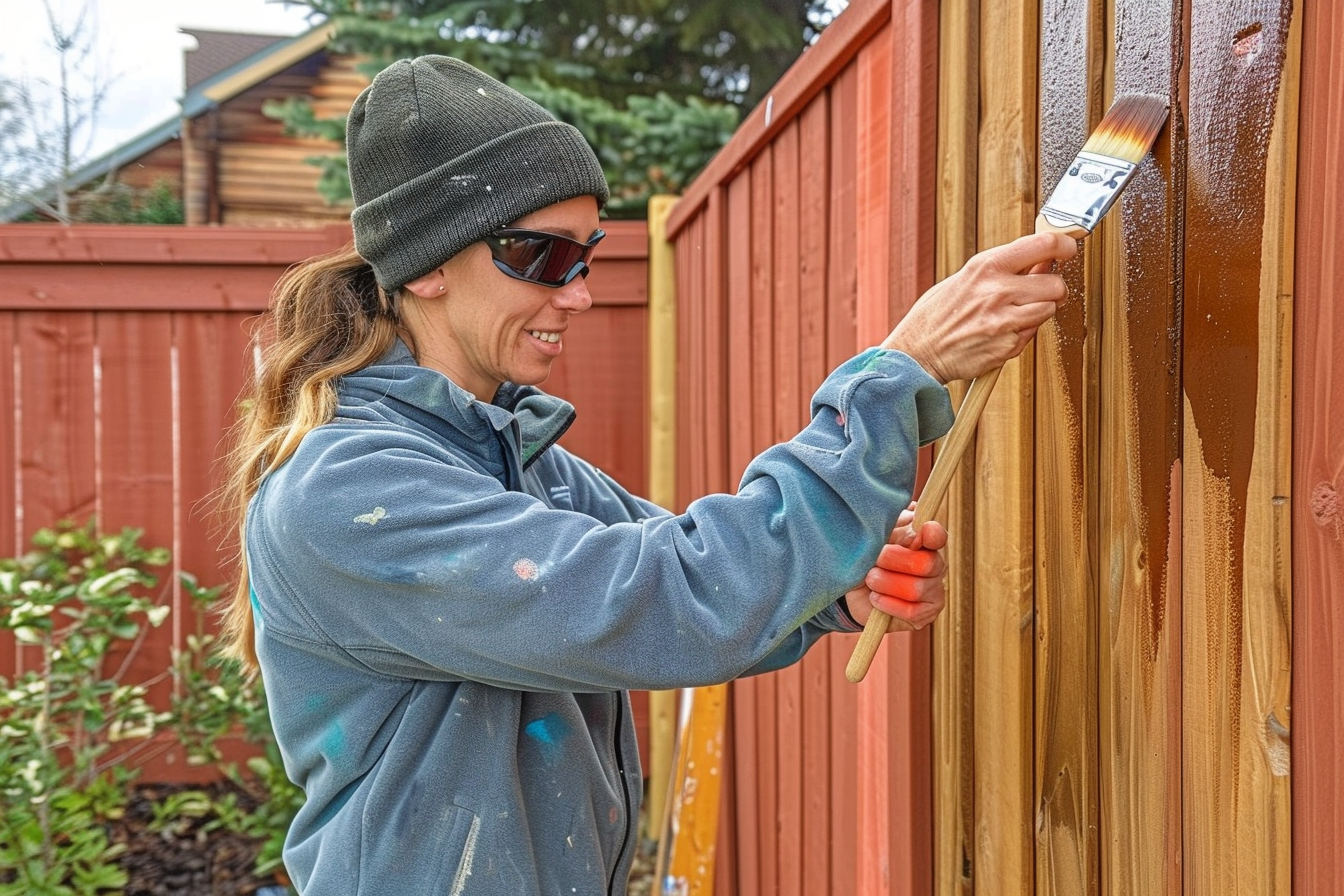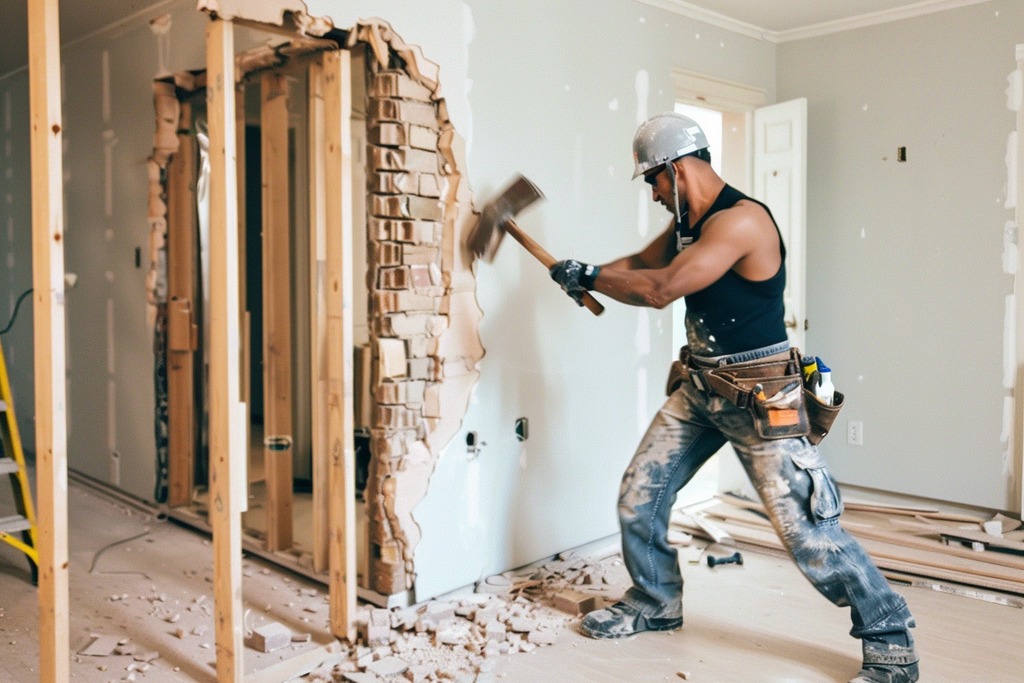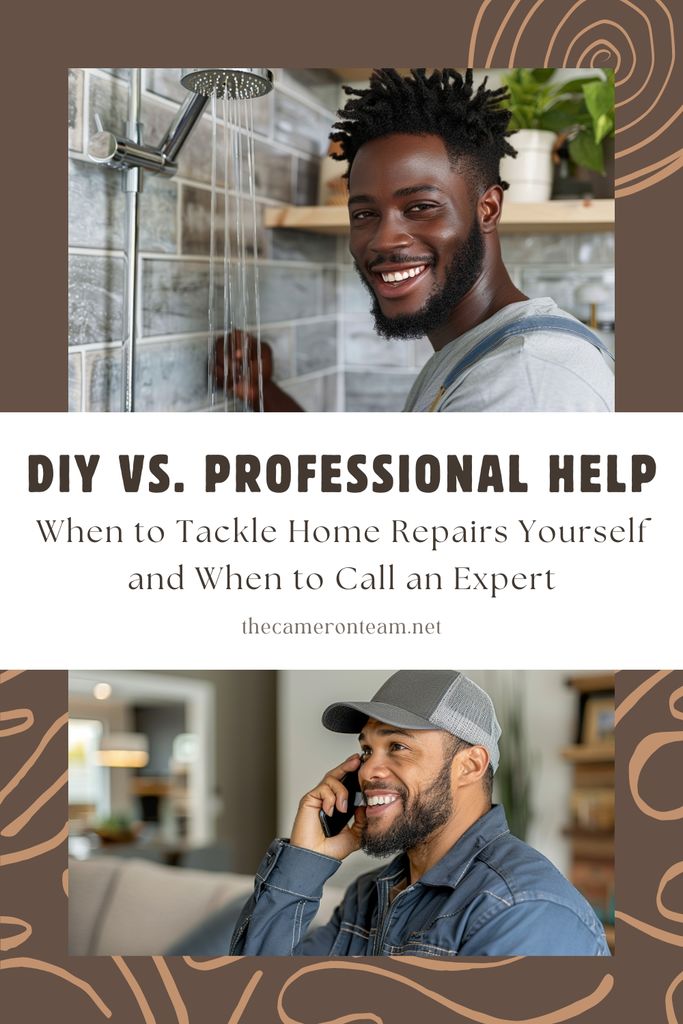Ah, home repairs – they’re just part of the package when you own a home, right? Sometimes they pop up out of nowhere, other times they’re the lingering “I’ll get to it” kind. But the real question often is, should you grab your toolbox and tackle it yourself, or is this the time to call in a pro? It’s not just about saving a few bucks; it’s about doing the job right and safely. In this blog, we’ll dive into when it’s savvy to handle home repairs on your own and when you should dial up a professional.
DIY vs. Professional Home Repairs: Making the Smart Choice
When to DIY:
- Simple Cosmetic Fixes:
- Painting: Giving a room a fresh coat of paint can completely transform the space and requires minimal expertise.
- Basic Landscaping: Planting flowers, laying down mulch, or even installing some simple edging can be satisfying and straightforward weekend projects.
- Minor Plumbing:
- Replacing Fixtures: Swapping out old faucets, showerheads, or even updating your toilet can usually be done with a few tools and some basic YouTube tutorials.
- Unclogging Drains: Before you call a plumber for a clog, try using a plunger, or a plumber’s snake to clear the blockage yourself.
- Basic Carpentry:
- Shelving: Installing pre-made shelves or assembling flat-pack furniture is a great way to enhance your space without needing advanced carpentry skills.
- Simple Repairs: Tightening loose hinges, fixing a broken door handle, or replacing some worn-out drawer slides can be easy fixes.
When to Call a Professional:
- Electrical Work:
- Major Wiring Jobs: Anything that involves adding or altering your home’s electrical system should be handled by a licensed electrician to avoid risks of fire or electrocution.
- Circuit Breaker Replacements: Upgrading or replacing a circuit breaker box is complex and requires knowledge of local codes and standards.
- Structural Changes:
- Removing Walls: Whether or not a wall is load-bearing, removing it can affect the structural integrity of your home and requires an expert assessment.
- Major Renovations: Extensive remodeling, especially in kitchens and bathrooms, often involves plumbing, electrical, and structural changes best handled by professionals.
- Roof Repairs:
- Leaks or Replacements: Roof work is not only risky but also requires a certain level of expertise to ensure that it’s done right, as improper repairs can lead to more significant issues like water damage or mold.
- HVAC Issues:
- Installing or Repairing Units: Heating, ventilation, and air conditioning systems are intricate and expensive. Professionals can guarantee that systems run efficiently and adhere to safety standards.
DIY Tips for the Eager Homeowner
- Educate Yourself: Always research and understand the task at hand. Use reputable sources to guide you, such as well-known DIY blogs, videos from certified professionals, and manufacturer’s manuals.
- Gather the Right Tools: Ensure you have all necessary tools before starting a project. This not only makes your work easier but also safer.
- Safety First: Always wear appropriate safety gear like gloves, goggles, and ear protection, depending on the job.
Knowing When to Call in the Pros
- Assess the Risk: If a mistake could lead to significant damage or require expensive repairs, it’s better to start with a professional.
- Consider Time vs. Cost: Evaluate how much your time is worth. Sometimes, the time you’d spend learning and doing it yourself might be better spent on hiring someone who can finish the job quickly and efficiently.
- Permits and Codes: Some home repairs require permits and need to meet local building codes. Professionals can handle the bureaucracy and ensure compliance.
Choosing the Right Professional for Your Home Repairs
When it’s clear that a DIY approach isn’t the best choice, finding the right professional is the next critical step. Here’s how to ensure you pick a reliable expert who can tackle your home repair needs effectively and efficiently:
- Get Recommendations:
- Word of Mouth: Ask family, friends, or neighbors who they trust and why. Personal recommendations are often the most reliable.
- Online Reviews: Websites like Angi (formerly Angie’s List), HomeAdvisor, and Google can provide insights into a contractor’s reputation, quality of work, and customer service.
- Check Credentials:
- Licenses: Ensure the contractor is licensed to work in your area. This not only affirms their legitimacy but also indicates they meet industry and local government standards.
- Insurance and Bonds: Verify that they have liability insurance and are bonded. This protects you in case of accidents or damage during the repair process.
- Experience and Specialization:
- Relevant Experience: Look for a professional with extensive experience in the specific type of repair you need. Specialization matters, especially for complex projects like electrical work or plumbing.
- Portfolio: Ask for examples of their previous work, especially if it’s similar to the project you need done.
- Get Multiple Estimates:
- Cost Comparisons: It’s wise to get quotes from several contractors to compare prices. However, don’t just go for the cheapest option; consider value for money.
- Detailed Breakdowns: Ensure estimates include a detailed breakdown of materials, labor, and other costs. This transparency helps prevent unexpected expenses later on.
- Assess Communication and Professionalism:
- Response Time: Pay attention to how quickly they respond to your inquiries. Prompt communication is often a good indicator of reliable service.
- Professional Interaction: From the initial call to the estimate process, their professionalism can give you insight into what type of service you can expect.
- Review Contracts Thoroughly:
- Clear Contracts: The contract should clearly outline the scope of the project, timeline, costs, and warranty or guarantee details. Make sure all your expectations are in writing.
- Payment Terms: Understand the payment schedule and make sure it’s reasonable. Avoid contractors who demand full payment upfront.
- Ask About After-Service Support:
- Warranty or Guarantee: Check if they offer a warranty on their work. It’s comforting to know you have coverage should something go wrong after the repairs are completed.
- Post-Job Cleanup: Confirm whether they handle cleanup after the project is completed. This service can greatly influence your overall satisfaction.
Choosing the right professional doesn’t just mean getting the job done; it means getting the job done right.
Wrapping It Up: Striking the Right Balance
Deciding between DIY and hiring a professional often depends on your skills, the project’s complexity, and the risks involved. While DIY projects can be rewarding and cost-effective, professional help is essential for ensuring safety and quality, especially with significant repairs or renovations. Remember, the goal is to keep your home safe, beautiful, and functional, whether you do it yourself or call in the experts.
What do you think? Ready to tackle that leaky faucet, or is it time to pick up the phone and call a contractor? Either way, you’re now equipped to make informed decisions about home repairs.








